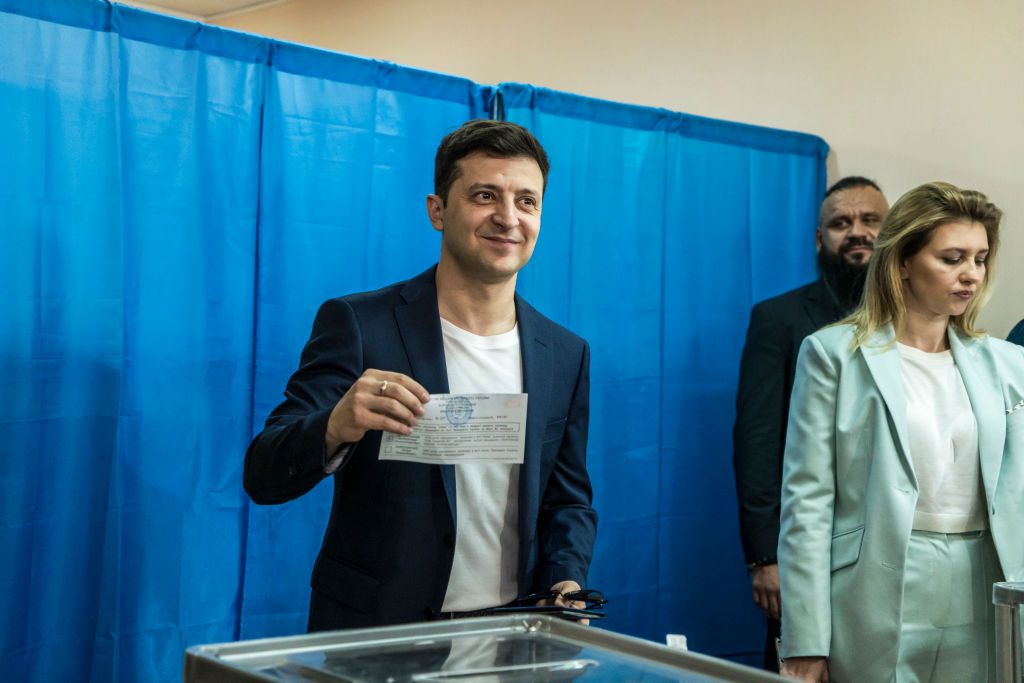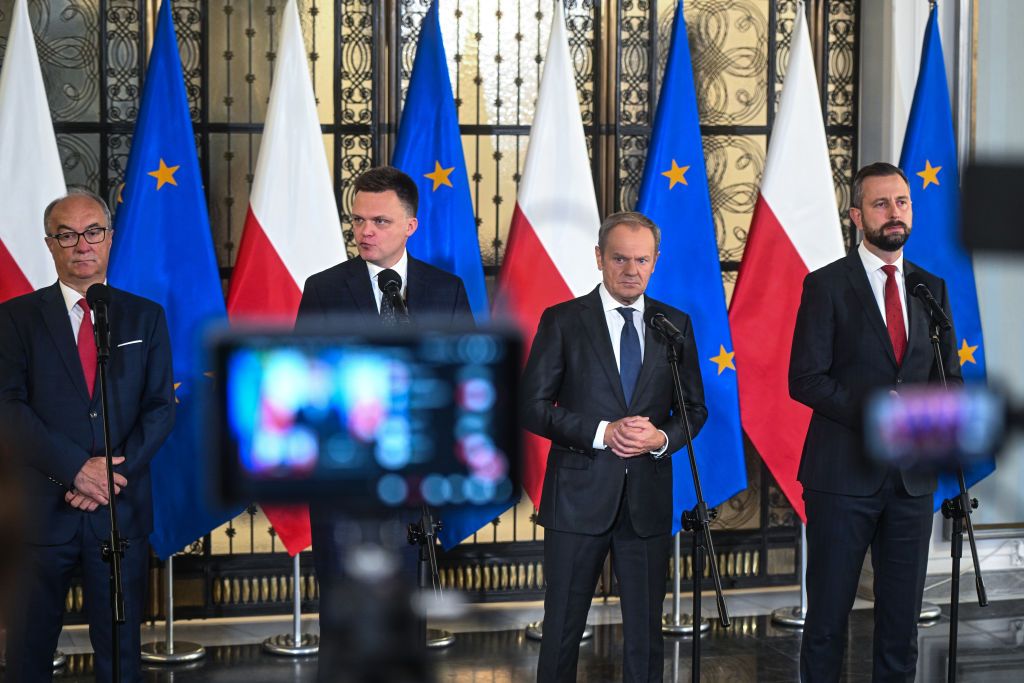Opinion: Why the Polish elections are good news for Ukraine

The story around the Polish parliamentary elections earlier this month is one of a country at a crossroads. It was said that these were the most important elections since 1989, as a further Law and Justice (PiS) government would have cemented an increasingly illiberal system. In Western media outlets, the opposition’s victory was therefore celebrated as a triumph of a new liberal democratic trajectory.
Warsaw’s two potential trajectories cover not only domestic politics but also the question of its external relations. The outcome has therefore been hailed as a return of Poland into the European mainstream.
Not much noticed, however, was the underlying Ukrainian trajectory. Although for a long time a bipartisan issue, Ukraine has slowly become a heated topic, and the outgoing PiS government was progressively on a confrontational course. The victory of the opposition, which represents a fundamentally different, constructive approach, therefore presents good news for Kyiv, the future of bilateral relations, and Ukraine’s European aspirations.
The PiS’ increasingly confrontational trajectory
To understand this, it’s worth noting that PiS at the end of the electoral campaign was not the same party that Ukrainians got accustomed to since the start of Russia’s full-scale invasion. While Warsaw used to be one of Kyiv’s most vocal supporters in the EU, the tone changed sharply.
A new strategy was revealed in August through which PiS members argued that the party would seek to gain anti-Ukrainian voters from the far-right Confederation party. PiS feared losing rural voters to the Confederation party, which campaigned on opposing Ukrainian grain imports to Poland and thus revealed this new strategy just weeks after Confederation rose to 15% in opinion polls.
At the time, it was already foreseeable that PiS, even as the biggest party, would very likely need a coalition partner. As all other opposition parties now in the Sejm ruled out a coalition with PiS during the campaign, Confederation was seen as the only feasible option. Confederation in such a position would then have used its government posts to exercise further pressure on PiS to propagate anti-Ukrainian and -European tones.
As a result of the recent elections in Slovakia, Ukraine would then have had three EU neighbors whose governments ran electoral campaigns on anti-Ukrainian slogans. This rhetoric would also have given even more fuel to some politicians in Washington who openly dismiss the idea of providing further aid to Kyiv.
The right narrative at the right time
The likely new coalition, which consists of exclusively pro-European parties, takes an entirely different trajectory. While the Confederation party took on a confrontational tone similar to that of PiS toward Kyiv, including regarding the grain crisis, the biggest among the likely new ruling opposition parties, the Civil Platform party, presented a plan for the “stabilization of Polish-Ukrainian relations.”
Civil Platform’s plan advocates for a long-term, constructive approach to, a) make Ukrainian migrants in Poland one of the country’s strengths, b) carry the “main burden” of coordinating military and humanitarian support for Ukraine, c) be the most engaged country in reconstructing Ukraine, and d) engage in more dialogue with all relevant stakeholders. This strategy is in clear contrast to the confrontational, short-sighted narratives of the alternative, a PiS-led coalition.
At a time when the world’s attention has shifted to the Middle East, some policymakers in Washington strongly advocate stopping any further aid to Ukraine, and Slovakia, one of Ukraine’s EU neighbors, has seen a shift toward a more pro-Russian coalition, Warsaw’s change in narratives sends out the right signal at the right time.
The new coalition as a bridge builder for Kyiv
Because the new ruling coalition in Warsaw seeks stable relations with Kyiv and wants a crucial and constructive role in global processes concerning Ukraine, both Ukraine’s short- and long-term prospects have improved.
In the short term, the results mean Ukraine’s biggest EU neighbor remains on a firm trajectory with respect to aiding Kyiv in both word and deed. Through this, Warsaw might play a role in shaping a constructive dialogue in favor of supporting Ukraine and not be one of the figures Ukraine-skeptic politicians in the West point their fingers to.
Looking forward, the new ruling coalition will also have a strong pro-European character. Donald Tusk, the likely new prime minister and a former president of the European Council, knows the “how’s” of navigating Brussels and building cross-national coalitions. The confrontational tone of PiS in this area will therefore also be replaced by one of constructive dialogue and problem-solving.
Due to the key role that the “new Warsaw” wants to play regarding Ukraine, Kyiv will have an ally that not only wants to build bridges connecting it with the EU but also one that knows how to build them. While the burden of conducting reforms will still remain on Kyiv’s shoulders, Ukraine can now rest assured that its pro-European aspirations will be heard even louder in Brussels through the echoes of its new Polish partners that themselves have a credible standing in European capitals.
Editor's Note: The opinions expressed in the op-ed section are those of the authors and do not purport to reflect the views of the Kyiv Independent.












